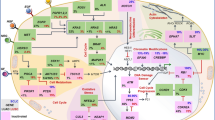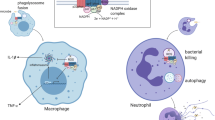Background and Purpose:
Low-dose radiotherapy (LD-RT) is known to exert an anti-inflammatory effect, however, the underlying molecular mechanisms are not fully understood. The manipulation of polymorphonuclear neutrophil (PMN) function and/or recruitment may be one mechanism. Chemokines contribute to this process by creating a chemotactic gradient and by activating integrins. This study aimed to characterize the effect of LD-RT on CCL20 chemokine production and PMN/endothelial cell (EC) adhesion.
Material and Methods:
The EC line EA.hy.926 was irradiated with doses ranging from 0 to 3 Gy and was co-cultured with PMNs from healthy donors either by direct cell contact or separated by transwell membrane chambers. CXCL8, CCL18, CCL20 chemokine and tumor necrosis factor-(TNF-)α cytokine levels in supernatants were determined by ELISA and adhesion assays were performed. The functional impact of the cytokines transforming growth factor-(TGF-)β1 and TNF-α and of the intercellular adhesion molecule-(ICAM-)1 on CCL20 expression was analyzed by using neutralizing antibodies.
Results:
As compared to CXCL8 and CCL18, CCL20 chemokine secretion was found to be exclusively induced by a direct cell-cell contact between PMNs and EA.hy.926 ECs in a TNF-α-dependent, but ICAM-1-independent manner. Furthermore, irradiation with doses between 0.5 and 1 Gy resulted in a significant reduction of CCL20 release which was dependent on TGF-β1 (p < 0.01). The decrease of CCL20 paralleled with a significant reduction in PMN/EA.hy.926 EC adhesion (p < 0.001).
Conclusion:
The modulation of CCL20 chemokine expression and PMN/EC adhesion adds a further facet to the plethora of mechanisms contributing to the anti-inflammatory efficacy of LD-RT.
Hintergrund und Ziel:
Eine niedrigdosierte Strahlentherapie (LD-RT) kennzeichnet eine entzündungshemmende Wirksamkeit, die zugrundeliegenden molekularen Mechanismen sind jedoch noch unvollständig aufgeklärt. Die Beeinflussung der Funktion oder Rekrutierung von polymorphkernigen neutrophilen Granulozyten (PMNs) könnte einen Mechanismus darstellen. Chemokine tragen zu diesem Prozess durch die Ausbildung eines chemotaktischen Gradienten und die Aktivierung von Integrinen bei. In dieser Studie wurde der Effekt der LD-RT auf die Expression des Chemokins CCL20 und die Adhäsion von PMNs an Endothelzellen (ECs) untersucht.
Material und Methodik:
Die EC-Linie EA.hy.926 wurde mit Dosen von 0–3 Gy bestrahlt und mit PMNs gesunder Spender, entweder in direktem Zell-Zell-Kontakt oder durch Transwell-Membran-Kammern getrennt, kultiviert. Die Konzentrationen der Chemokine CXCL8, CCL18, CCL20 und von Tumor-Nekrose-Faktor-(TNF-)α im Kulturüberstand wurden in einem ELISA bestimmt. Ein funktioneller Einfluss der Zytokine „transforming growth factor“-(TGF-)β1 und TNF-α sowie des „intercellular adhesion molecule“-(ICAM-)1 auf die CCL20-Expression wurde mittels neutralisierender Antikörper untersucht.
Ergebnisse:
Im Vergleich zu CXCL8 und CCL18 wurde die Sekretion des Chemokins CCL20 ausschließlich durch einen direkten Zell-Zell-Kontakt zwischen PMNs und EA.hy.926-ECs in einem TNF-α-abhängigen, jedoch nicht durch ICAM-1 vermittelten Prozess induziert. Eine Bestrahlung mit Dosen zwischen 0,5 und 1 Gy führte zu einer signifikanten TGF-β1-vermittelten Minderung der CCL20-Sekretion (p < 0,01). Neben der Reduktion von CCL20 konnte eine gleichzeitige signifikante Verminderung der Adhäsion von PMNs an EA.hy.926-ECs beobachtet werden (p < 0,001).
Schlussfolgerung:
Die Modulation der CCL20-Chemokin-Expression und der PMN/EC-Adhäsion stellt eine neuartige Facette der Mechanismen dar, die zur entzündungshemmenden Wirksamkeit der LD-RT beitragen.
Similar content being viewed by others
Author information
Authors and Affiliations
Corresponding author
Additional information
*Both authors contributed equally to the study.
Rights and permissions
About this article
Cite this article
Rödel*, F., Hofmann*, D., Auer, J. et al. The Anti-Inflammatory Effect of Low-Dose Radiation Therapy Involves a Diminished CCL20 Chemokine Expression and Granulocyte/Endothelial Cell Adhesion. Strahlenther Onkol 184, 41–47 (2008). https://doi.org/10.1007/s00066-008-1776-8
Received:
Accepted:
Issue Date:
DOI: https://doi.org/10.1007/s00066-008-1776-8




